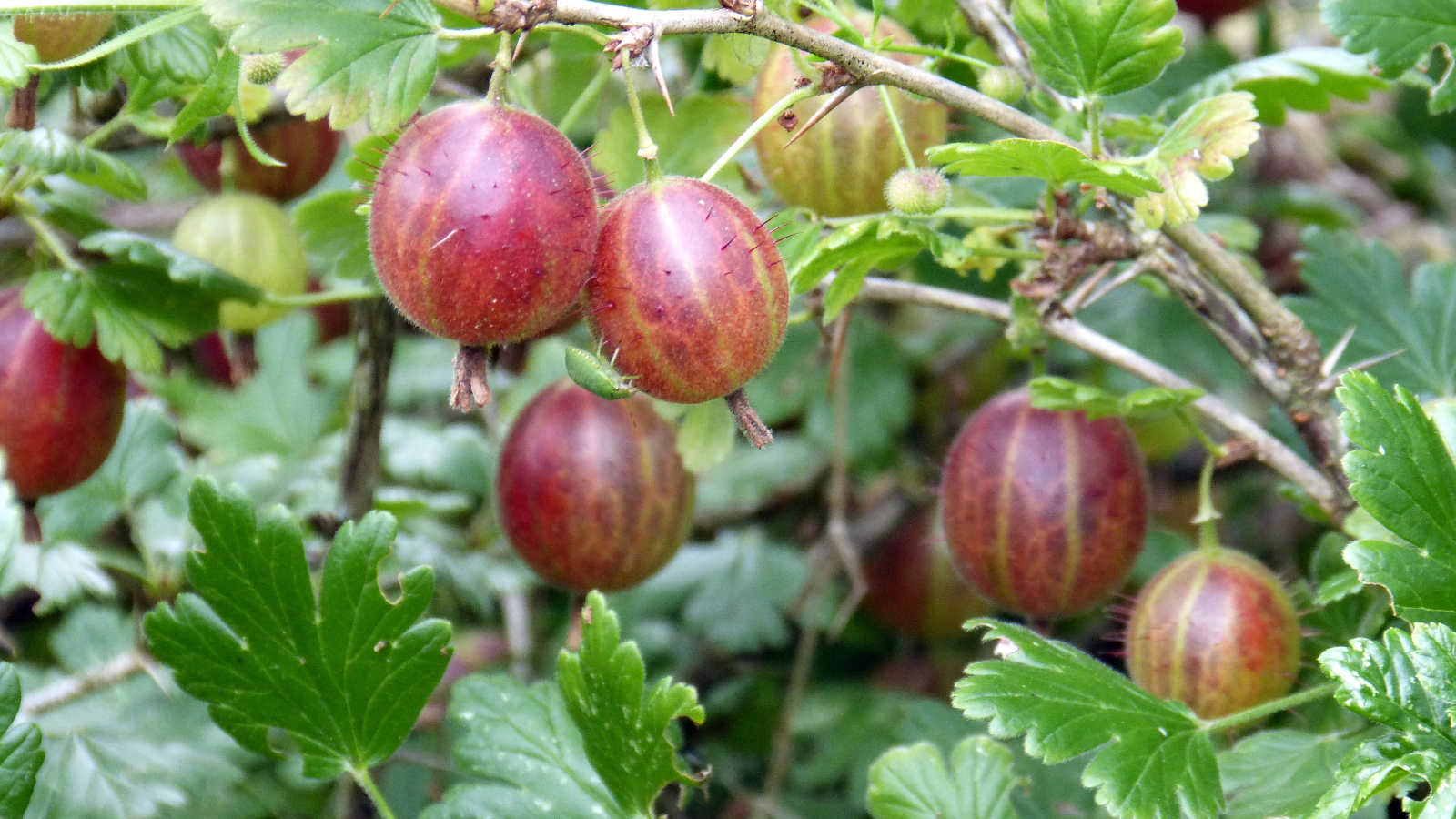Table of Contents
Gooseberries embody the feeling and the taste of summer, and we love these small, round berries with their crunchy skin and sweet and sour flesh. We like to nibble the gooseberries straight from the bush in the garden, and our dogs can’t resist either. But how healthy are gooseberries for four-legged friends?
In this article, we would like to examine in more detail whether dogs are also allowed to eat gooseberries and whether the berries also have health benefits for fur noses.
Can dogs eat gooseberries?
Yes, dogs are allowed to eat gooseberries. As a rule, however, the four-legged friends prefer fully ripe, very sweet berries such as strawberries or raspberries. If gooseberries are too sour, they are often refused.
You can always mix pureed gooseberries with the barf meal or offer fully ripe fruits as a small snack between meals. In any case, you don’t have to worry if your little darling is helping himself in the garden.
These gooseberry ingredients are healthy for the dog
Gooseberries contain vitamin A, B1, B2 and B6, C, vitamin E, and niacin, and are known to be full of iron, potassium, calcium, and magnesium.
Like most berries, gooseberries also have a rather low sugar content and are therefore also suitable for somewhat overweight dogs. One hundred grams of gooseberries provide around 7 grams of fructose and only have around 33 calories.
Allergy to gooseberries in dogs?
Even if allergies to gooseberries are rare, your four-legged friend may be allergic to the malic acid and citric acid it contains. It usually shows up through vomiting or diarrhea.
In rare cases, breathing problems can also arise. Then you should see the vet immediately and stop feeding gooseberries.
Often animals and humans also have an allergic reaction to the pesticides with which the berries have been treated. It is therefore important to wash the gooseberries properly before consuming them. You can get rid of almost all pesticides with vinegar water or a little baking soda in the water.
It is, of course, best to use gooseberries from your garden or organic quality fruits.
Benefits of gooseberries for the dog
First and foremost, the vitamins, minerals, and trace elements have a positive effect on the health of your four-legged friend. They strengthen the immune system. The dietary fiber in the gooseberries also has a positive effect and promotes digestion.
The minerals and vitamins are also great for your dog’s teeth and coat. If your four-legged friend tends to produce high sebum levels, gooseberries can also help.
The berries have a mild anti-inflammatory effect. Gooseberries can quickly provide relief, especially if there is inflammation in the mouth. In addition, these berries are draining and detoxifying.
Disadvantages for the dog
Some dogs are a little sensitive to the thick skin of the berries. If your four-legged friend has such a sensitive stomach, you should always lightly steam the gooseberries before feeding, or puree them and press them through a sieve.
If there are no other allergies to gooseberries, these healthy fruits have hardly any disadvantages. However, the only disadvantage for four-legged friends can be that they sting themselves on the thorns of the hedge if they help themselves in the garden.
Are gooseberries poisonous to dogs?
No, the gooseberries are not poisonous for your four-legged friend. You can feed the fur nose gooseberries without hesitation. Of course, as with all fruit, you should never feed too much at once.
Similar foods
Your dog can eat all berries such as strawberries, blackberries, raspberries, and currants, black or white. Most dogs love these sweet treats.
Especially in summer, when it’s very hot, you can give your little darling frozen gooseberries.
Are gooseberries in dog food?
Gooseberries in dog food are still relatively rare, but some manufacturers and varieties have these healthy fruits.

